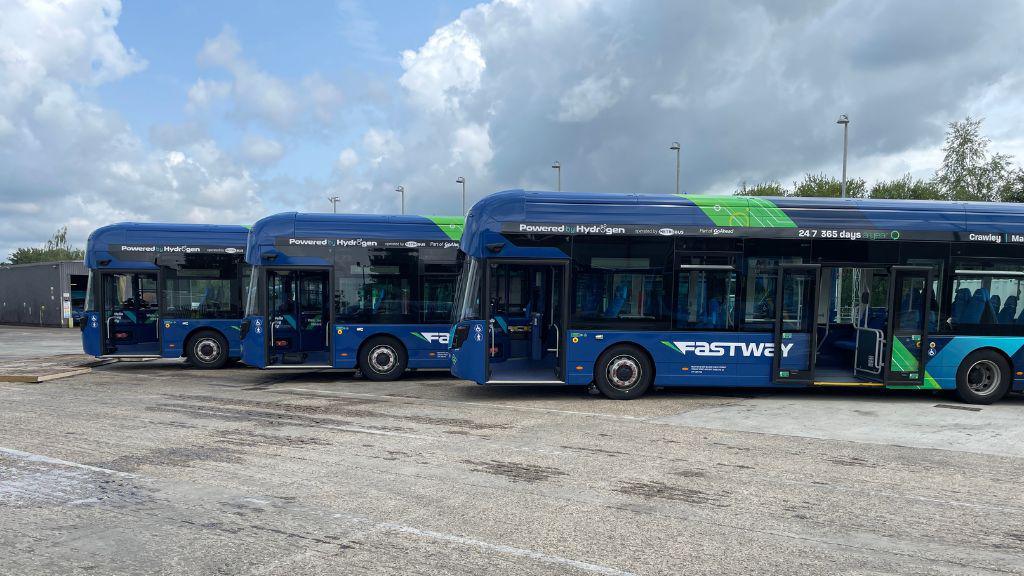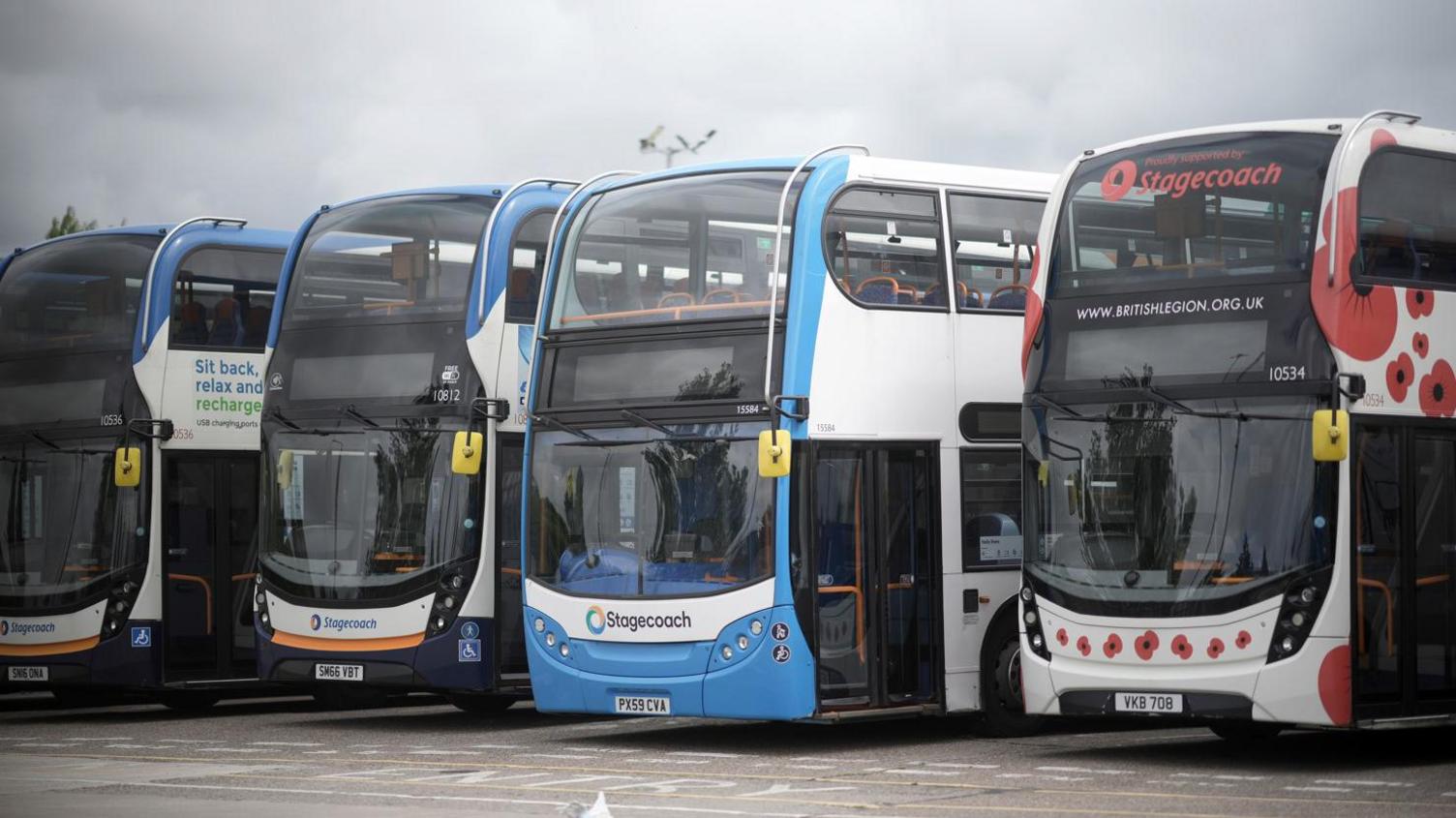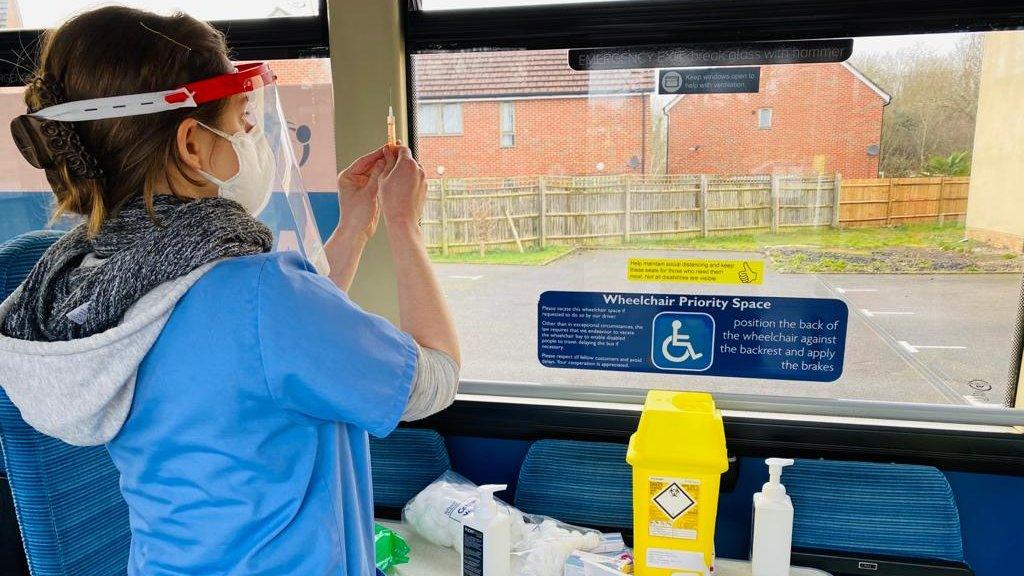New fleet of hydrogen-fuelled buses to be launched

Metrobus say 54 buses will be working its most rigorous routes
At a glance
A new fleet of hydrogen-fuelled buses is to be launched
Metrobus say 54 buses will be working its most rigorous routes
Each hydrogen-fuelled bus costs £500,000
- Published
A new fleet of hydrogen-fuelled buses is to launch in West Sussex.
Metrobus, based in Crawley, currently has 15 single-decker vehicles working its most rigorous routes.
But by the end of next year, the company will have 54 – said to be one of the largest fleets of hydrogen-fuelled buses in Europe.
Ed Wills, managing director of Metrobus, said the zero emission vehicles are “a step towards decarbonising our economy”.
“For us, this is incredibly exciting as it’s the first hydrogen vehicles that will run in the Crawley area and the first zero emission vehicles in our fleet,” he said.
“And importantly, with hydrogen, we will get a full days work out of them.”
'First of its kind'
Each hydrogen-fuelled bus costs £500,000 – double the price of a similar-sized diesel bus.
But Metrobus said funding from the government, Gatwick Airport and EU grants have allowed the transition.
The chair of bus operator Go Ahead Group, Clare Hollingsworth, said the launch was “the first of its kind”.
“These are the first hydrogen buses in our network across the world,” she said.
“We chose Crawley because the routes they will be operating in are the most intensive in our network.”
Analysis
By Yvette Austin, BBC South East Environment Correspondent
This is a really significant step towards a greener future for public transport in the South East.
Metrobus has chosen hydrogen over electric because the buses have a longer range and are quick and easy to refuel.
Metrobus is owned by the Go Ahead group, which also owns Brighton and Hove Buses and so we can expect that it will be working to try to introduce zero-emission buses too.
But this may take some time though as the transition is costly.
'Teething problems'
Roads and local transport minister, Richard Holden, said the introduction of the buses was “vitally important”.
“We know the transition will come with its fair share of challenges and there will be teething problems, but we must not lose sight of the opportunities on offer,” he said.
Follow BBC South East on Facebook, external, on Twitter, external, and on Instagram, external. Send your story ideas to southeasttoday@bbc.co.uk, external.
Related topics
- Published21 June 2023

- Published5 April 2014
- Published1 February 2021
